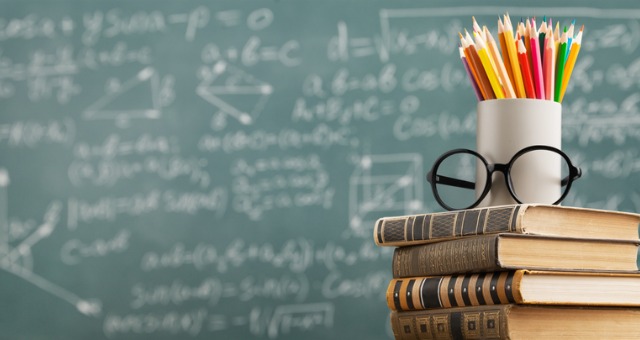The Best Primary Science Tuition Singapore for Effective Learning Methods
The Best Primary Science Tuition Singapore for Effective Learning Methods
Blog Article
Discovering the Different Training Strategies in Main Scientific Research Education And Learning Today
Inquiry-based learning, hands-on experiments, and the integration of modern technology are redefining exactly how teachers involve young minds. Furthermore, collective approaches and differentiated guideline are being used to cater to the diverse needs of students, enhancing both engagement and understanding.
Inquiry-Based Learning
Inquiry-Based Discovering (IBL) is an instructional strategy that encourages pupils to explore clinical principles through wondering about, investigation, and hands-on trial and error. This method highlights the function of students as energetic participants in their learning, advertising important thinking and problem-solving skills. By engaging with real-world concerns, students come to be determined and interested, which boosts their understanding of clinical principles.
In IBL, teachers serve as facilitators, directing students as they navigate their queries instead than delivering details directly. This student-centered approach enables for differentiation, fitting various finding out styles and paces. Students develop skills in formulating theories, creating experiments, and analyzing data, which are vital for scientific literacy.
Additionally, IBL promotes partnership among students, motivating them to share ideas and searchings for. This cumulative query promotes social abilities and a feeling of community within the class. The procedure of questions encourages resilience, as pupils discover to welcome failure as a stepping stone toward understanding.
Hands-On Experiments
Hands-on experiments are an essential part of reliable scientific research education, complementing the principles of inquiry-based knowing. These experiments permit trainees to engage directly with scientific concepts, promoting a deeper understanding with experiential learning. By controling materials and observing outcomes, young learners can grasp abstract theories in concrete methods.
Such activities advertise vital thinking and problem-solving abilities, as trainees assume outcomes, conduct experiments, and analyze results. This process urges them to ask concerns, refine their understanding, and develop a scientific frame of mind. Hands-on experiments can be tailored to diverse discovering styles, making certain that all students have the possibility to engage meaningfully with the web content.
Additionally, hands-on experiments usually urge cooperation amongst peers, advertising teamwork and communication skills. Functioning in teams makes it possible for pupils to share ideas, review searchings for, and gain from one another, which enhances their general academic experience.
Integrating hands-on experiments right into the primary science educational program not only improves the discovering atmosphere however additionally cultivates a long-lasting rate of interest in science. By actively taking part in their education and learning, pupils are more probable to create an enthusiasm for scientific query that expands beyond the class.

Modern Technology Integration
Incorporating technology into primary science education and learning has come to be increasingly crucial in fostering pupil involvement and boosting finding out results. Making use of electronic devices, such as interactive simulations, virtual laboratories, and educational software program, provides trainees with opportunities to check out scientific concepts in ingenious methods. These resources assist in a much deeper understanding of complicated topics by enabling learners to visualize and adjust variables that would be not practical in a standard class setting.
Furthermore, modern technology integration motivates customized discovering experiences. Trainees can proceed at their own speed, reviewing tough concepts through multimedia resources, which deal with different discovering styles. This flexibility not just sustains private development but additionally grows a feeling of freedom in students.
In addition, innovation acts as a bridge to real-world science, connecting trainees with existing study and specialist payments. Accessibility to online databases and clinical journals broadens trainees' perspectives on scientific inquiry and fosters important thinking abilities.
Collaborative Knowing
Collective knowing plays an important function in main science education and learning by promoting synergy and interaction skills amongst pupils. This technique motivates students to function together, share knowledge, and involve in analytical, which enhances their understanding of scientific concepts. By participating in group activities, pupils find out to verbalize their ideas, pay attention to diverse point of views, and discuss services, every one of which are necessary abilities in both real-world and scholastic contexts.

Research study indicates that collective discovering can result in enhanced inspiration and interaction in science subjects, as trainees find satisfaction in shared experiences (primary science tuition Singapore). In addition, this technique prepares pupils for future collaborative undertakings, equipping them with the abilities required for efficient synergy in higher education and learning and professional settings. Ultimately, accepting collective knowing in main science education can considerably enrich the learning experience and promote a much deeper understanding of scientific inquiry
Separated Guideline

Separated direction can materialize in various ways, such as varying the content, procedures, or items of discovering. Teachers may make use of tiered jobs that supply varying degrees of complexity, allowing trainees to work at their corresponding readiness levels. that site Furthermore, versatile organizing techniques can facilitate cooperation among trainees with various capabilities, fostering peer discovering.
Assessment plays a vital duty in this method, as it educates direction and aids teachers comprehend each student's special needs. Formative assessments, such as quizzes and monitorings, can guide instructors in changing their techniques to improve learning end results. primary science tuition Singapore. Inevitably, by executing differentiated direction in main scientific research education and learning, instructors can cultivate an extra effective and fair understanding environment, equipping all students to reach their complete potential in comprehending scientific phenomena
Verdict
In recap, the diverse teaching strategies in primary science education and learning, consisting of inquiry-based understanding, hands-on experiments, modern technology assimilation, collaborative learning, and set apart direction, jointly add to an extra effective understanding atmosphere. These techniques promote important reasoning, problem-solving skills, and a deeper understanding of scientific principles. By implementing these methods, teachers can create encouraging and appealing class that attend to the different needs of students, ultimately fostering a long-lasting rate of interest in scientific research and boosting academic success.
Inquiry-Based Understanding (IBL) is a pedagogical method that motivates students to discover clinical ideas via questioning, investigation, and hands-on experimentation.Joint knowing plays an important duty in main scientific research education and learning by cultivating team effort and communication abilities amongst trainees.Study suggests that joint knowing can lead to increased motivation and interaction in science topics, as pupils discover satisfaction in common experiences.In promoting an inclusive discovering environment, distinguished instruction emerges as an essential technique to fit the diverse requirements and capacities of trainees in main scientific research education. Inevitably, by executing distinguished guideline in key science education and learning, instructors can cultivate an extra equitable and effective learning atmosphere, useful reference equipping all pupils to reach their full possibility in comprehending scientific sensations.
Report this page